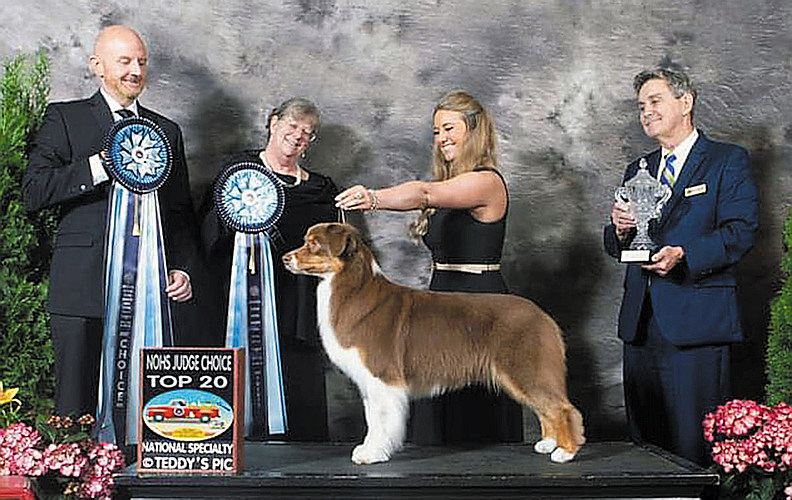By Heidi Dahms Foster
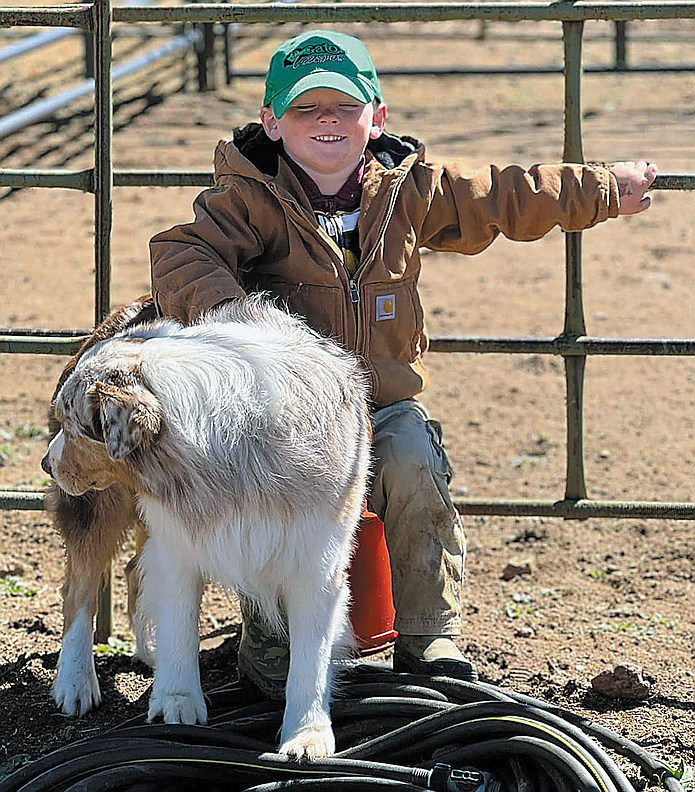
Many parents look for ways to keep their kids active and engaged, and those with family pets may have the perfect solution. Participation as a junior in dog sports can turn into a lifetime hobby, or in some cases, a fulfilling career, while building responsibility, sportsmanship and character.
The American Kennel Club conducted its first junior showmanship competition in 1920. Many young participants become professional handlers or show their own dogs long after they age out of the junior ranks. Single breed registries, for example, the Australian Shepherd Club of America, also have junior showmanship competitions, as does 4-H, a youth program that has been in existence for 122 years.
Early junior showmanship programs emphasized conformation, which focuses on a dog’s structure as it relates to each breed’s standard. Youth handlers now compete in all dog sports, including agility, obedience, rally, herding, and more. Young people who learn in junior competitions often handle dogs in adult competitions at the same time. Megan Sims Kennedy of PSR Stockdogs in Dewey, while a junior, handled a dog to Best of Breed at the 2008 Australian Shepherd Club of America National Specialty. She was also the ASCA Nationals Most Versatile Junior in 2008-2009. Megan, who originally started showing horses, is now a top stockdog trainer and instructor whose own young son can handle a stockdog as well as some adults.
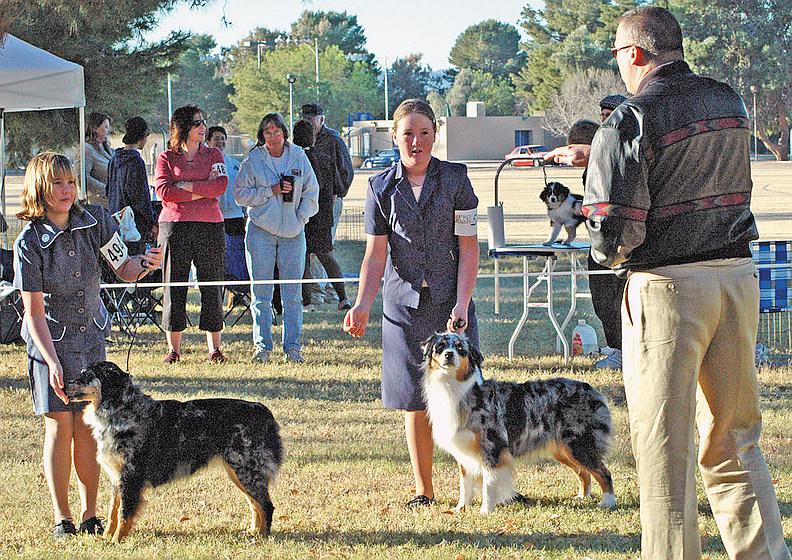
Learning to care for a dog and committing to the training and time it takes to compete builds self-discipline. Youngsters gain lifelong friends, and learn good sportsmanship whether winning or losing. The AKC states, “The values, attitudes, and responsibility learned while competing as juniors serve children throughout their entire lives.”
While the passion for the dog must be present (one mom said, “It’s either there or it’s not), the juniors who succeed in junior showmanship never forget the dogs that got them there, and the lessons they learn from their animals.
“You have to love your dog. And if they don’t love and trust you, nothing will happen,” said Megan. “I have had a lot of success in my junior career, but to me it is not about the ribbons we win or the titles we get. It’s the journey we take to get there. Win or lose, I always try to remember that even if that judge didn’t like my dog or my stock run didn’t go so well, I still have the same dog that I walked into the ring with. It is the dog I love and cherish and I’m happy with that.”
Clarissa Shank of Phoenix said she originally began showing dogs as something she could do to take a break from her kids. But when her daughter Shelby was just three and a half, she would get up early on dog show days and insist on going along. Clarissa gave in and Shelby began to show in the “peewee” competitions. Those early days built a close relationship with mom and daughter they still share today. “Shelby loved all of it from the beginning. She was always part of every step getting ready for shows, including washing her own dog,” her mother said.
Shelby was the ASCA Nationals Best Junior Handler in 2011. She became an accomplished breeder and exhibitor of Australian Shepherds, and at Westminster 2024, she and her homebred Aussie Sansa won the AKC National Owner Handler Series Top 20 Judges Choice award.
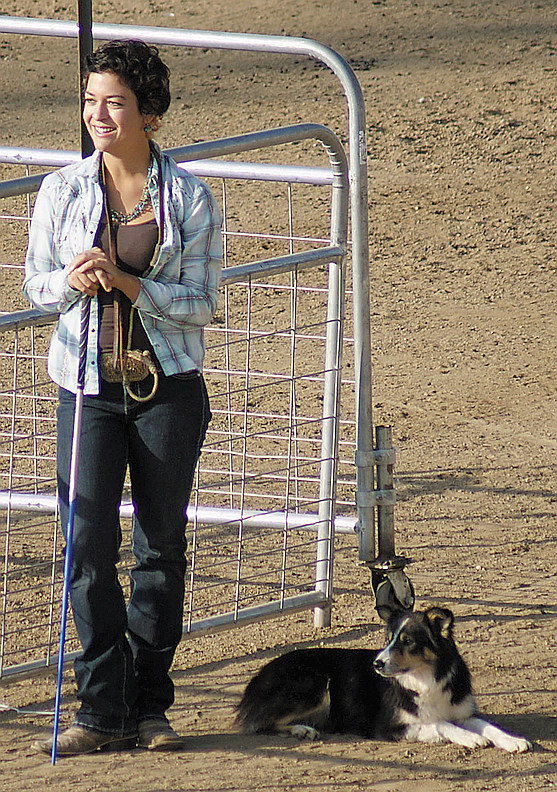
Mayer’s Mary Alice Wisecarver participated in her first herding dog trial at the age of 5. At the 2002 ASCA Nationals in Bakersfield, California, at just 7, Mary Alice and her Aussie, Charm, entered the sheep, cattle and duck herding trials, and at the end of the week emerged with the Open Working Junior award. The following year, she achieved the ASCA Overall High Working Junior award, and she held the honor for 10 straight years. Mary Alice now partners with her mother, Molly Wisecarver of Double M Stockdogs in Mayer and Williams, training and handling stockdogs in herding trials. A 4-H member for many years, Mary Alice also mentors local youngsters as the Lonesome Valley Wranglers 4-H club dog project leader.
Kathy Bryan of Prescott bought a horse for her daughter when Keely Bryan was just five years old. But it was dogs that forged a strong bond between the two. Keely was asked to show a dog before she ever entered the juniors ring, and later became an accomplished junior handler. Kathy especially cherishes the years they spent together showing dogs as Keely lost her life in 2001 to a drunk driver. Their strong relationship kept Kathy going as she worked to accomplish Keely’s dream of finishing her dog’s championship. Through her junior career, Keely gained an ability to get along with people of all ages and walks of life. She is remembered for her ability to take any dog into the show ring and bring out its best.
Clarissa and Kathy said junior handling helped both of their girls through the teen years. “Shelby was so busy shooting (she’s a world champion skeet shooter) and showing dogs, there was never any time for drama! And if you’re mad at each other, you can always talk about dogs!” Clarissa said.
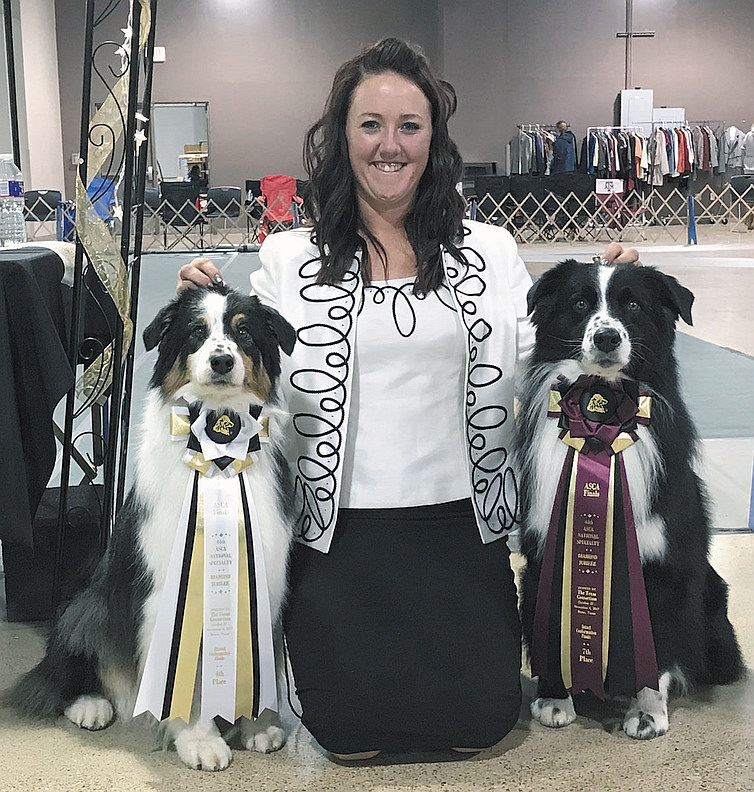
“Showing dogs kept me pretty grounded and focused through my teen years,” Shelby said. “I always had a new goal to achieve so it kept me out of the parties and high school drama.”
Today, Shelby says her juniors career is what helped mold her for the dog handler she is today. “Growing up in junior handling, you build such a different connection with the dog. Juniors is all about becoming one with your dog,” she said.
Junior handling also taught her to take constructive criticism, Shelby said, and to lose with grace.
“It was really good for me to be involved in a program where you need to learn to take feedback and at least give it a shot. I would also say being in juniors taught me to lose. Juniors is all about sportsmanship,” she said.
The relationships juniors form with each other, the people of all ages they come in contact with, and their own families give them an advantage in all areas of life. Lisa Gill, whose two daughters competed in conformation as juniors with their friends’ dogs, said the girls gained confidence as they learned to show the dogs through some tough personal times.
“The dogs were the thing that helped them to be stronger, and they enjoyed it. They love animals, so that was their favorite thing to do, to go and show. No matter whether they won or not, they were excited about going. Showing the dogs together also brought the two girls closer,” she said.
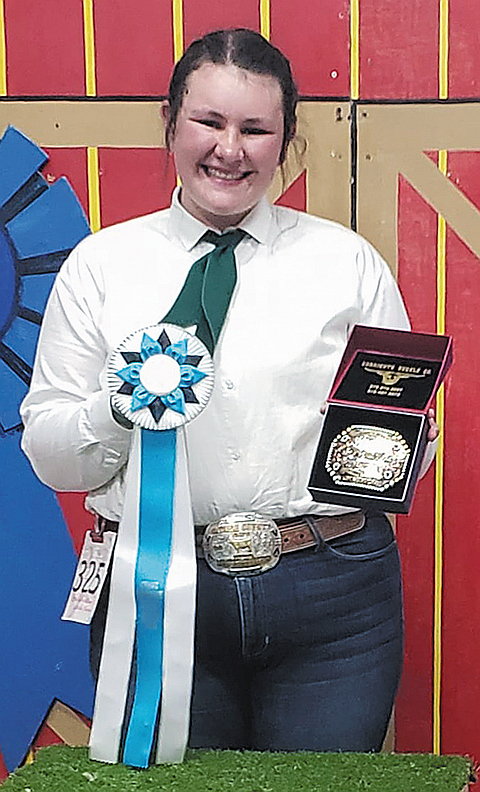
While local kennel clubs or single breed clubs often have programs for juniors, 4-H is another program that offers dog showmanship and handling among its many other projects.
Mayer resident Elyn Peterson and her mother Angela, along with Mary Alice and Molly Wisecarver, have been mainstays of the Lonesome Valley Wranglers 4-H club for years. Elyn, a high school senior this year, has won numerous round robin and other showmanship awards during her outstanding 4-H career, including those with her dog. She is an Arizona State 4-H Ambassador and this fall will be doing STEM outreach education for schools and other 4-H clubs.
Elyn’s mother Angela encourages new 4-H parents to be involved in every aspect of their child’s 4-H experience. “These are not just projects. The most successful 4-H experiences involve the whole family. Learning gives opportunities to connect and talk to your kids. 4-H is all about making the best better.”
Angela said the thing she is most proud of is that Elyn, while having outstanding accomplishments in 4-H, is still willing to share and mentor others. “We all want to raise good people, who will go into the community and step up to help,” she said.
Junior showmanship competitions in AKC and single breed registries do not require a purebred dog. Dogs must get a tracking number and then youngsters may compete in showmanship and performance sports.
- Find more about AKC junior showmanship at tinyurl.com/mdxh5mvy. The Prescott Arizona Kennel Club also offers local information at prescottarizonakennelclub.com
- Find single breed information for junior showmanship by searching online for each breed’s parent club.
- Find 4-H information for Yavapai County at extension.arizona.edu/4h/yavapai
